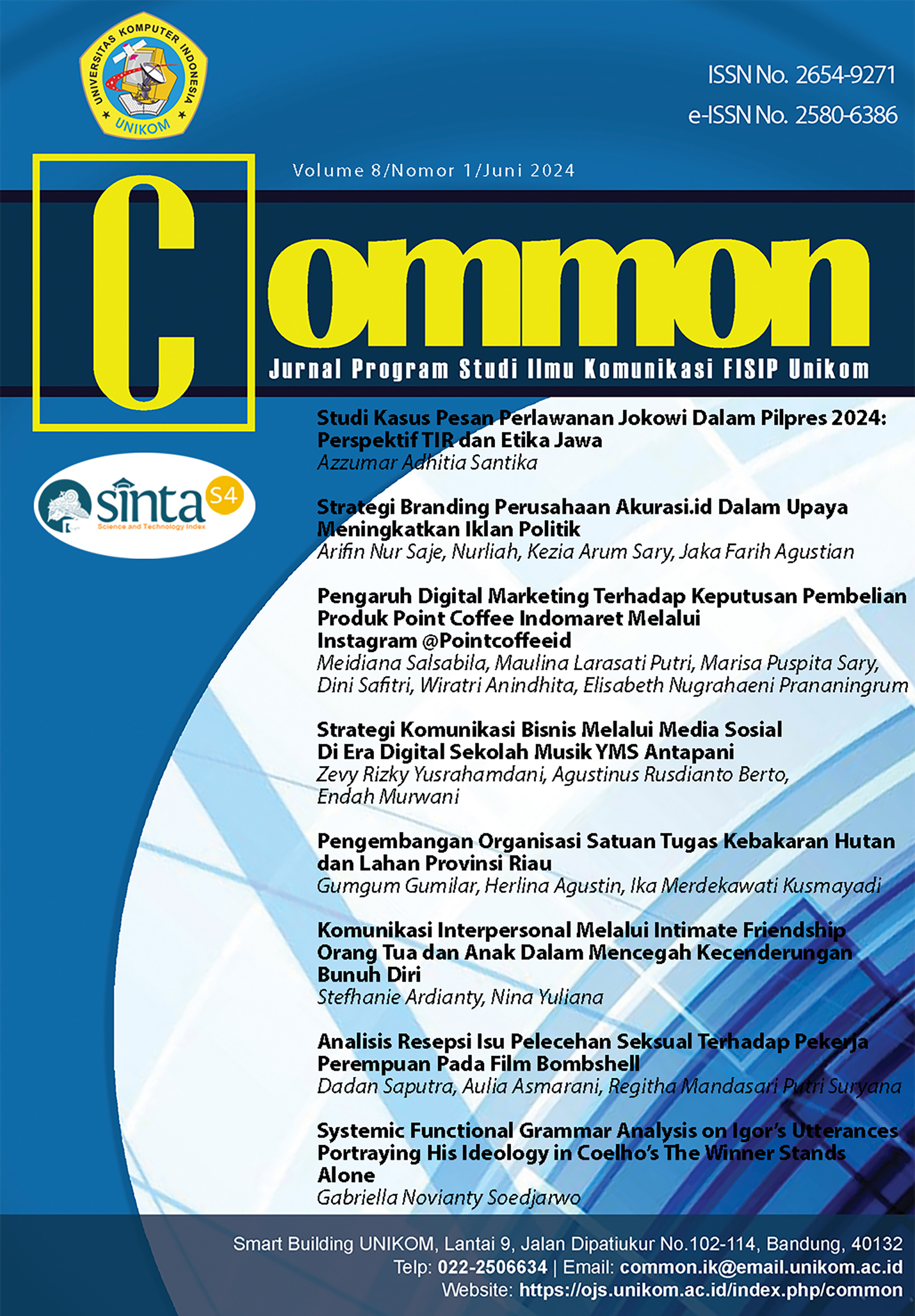Interpersonal Communication through Intimate Friendship Of Parents and Children in Preventing Suicide Tendencies
Main Article Content
Abstract
The self-isolation behavior exhibited by an individual when facing successive life challenges beyond their acceptance threshold can lead to a tendency to contemplate suicide. In this context, effective self-disclosure between parents and children is essential to cultivate intimate friendship, thereby addressing the inclination toward suicide. Therefore, this research aims to identify strategies and analyze a healthy intimate friendship between parents and children using the social penetration theory. The study adopts a constructivist paradigm, a qualitative approach, phenomenological methodology, and primary data collection through in-depth interviews. The findings from the field illustrate that intimate friendship between parents and children plays a crucial role in the mental healing process of the child. Effective communication patterns between parents and children also influence the development of intimate friendship. Several factors supporting the success of intimate friendship between parents and children were identified. Additionally, preventive strategies against suicidal tendencies in children through intimate friendship were discovered. Through intimate friendship, it was found that non-judgmental, empathetic, and profound interpersonal communication by parents can create an environment that fosters openness and assists children in overcoming mental health challenges. This minimizes the stigma associated with mental health issues and enables early detection of behavioral changes that may be linked to the risk of suicide.
Keywords: Interpersonal Communication, self-disclosure, intimate friendship, mental health, social support

